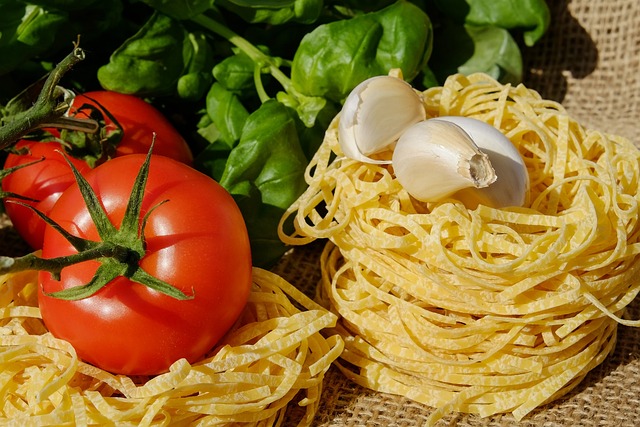Local Food Delivery and Meal Preparation services have revolutionized the way consumers access fresh, sustainable produce by providing a direct-to-consumer platform that supports local agriculture and minimizes carbon emissions associated with food transportation. These services enhance economic stability for small-scale farms, offer nutrient-rich meal options due to shorter farm-to-table distances, and foster a greater appreciation for the environmental impact of food choices. They also serve as an educational resource, informing consumers about sustainable farming practices and the benefits of seasonal eating. By championing local foods, these services not only improve the health of consumers but also contribute to the preservation of regional economies and culinary traditions. They strengthen community ties by promoting a shared commitment to sustainability and environmental conservation, making them pivotal in creating a resilient and supportive local ecosystem that values health, ecological sustainability, and community well-being.
Local food delivery services have become a lifeline for nearby farms, fostering a resurgence in agricultural communities and offering consumers a direct link to fresh produce. This article explores the multifaceted benefits of local food delivery and meal preparation, including their role in sustaining local agriculture, improving nutritional intake, and enhancing community ties. Join us as we delve into how these services are not just convenient but also pivotal in supporting the farms that lie at the heart of our regions’ culinary heritage.
- Embracing Agricultural Roots: How Local Food Delivery Services are Keeping Local Farms Thriving
- The Nutritional and Environmental Advantages of Opting for Local Food Delivery and Meal Preparation
- Strengthening Community Bonds: The Social Impact of Local Food Delivery on Local Farms and Consumers
Embracing Agricultural Roots: How Local Food Delivery Services are Keeping Local Farms Thriving

Embracing Agricultural Roots: How Local Food Delivery Services are Keeping Local Farms Thriving
In recent years, local food delivery services have become a beacon of support for small-scale and sustainable farms. These services provide a direct-to-consumer channel that allows farmers to offer their freshest produce and meal preparation options without the intermediary steps typically involved in the conventional supply chain. This model not only ensures that customers receive high-quality, nutritious meals but also helps maintain the viability of local agriculture by offering a consistent market for farm products. The convenience of having fresh, locally-sourced ingredients delivered to one’s doorstep has resonated with consumers who are increasingly conscious of the origin of their food and its environmental impact. Local food delivery services have become more than just a service; they are a movement that champions the preservation of local culinary traditions, supports biodiversity, and fosters a deeper connection between eaters and farmers.
Moreover, these services often highlight meal preparation options that leverage seasonal ingredients, promoting not only the consumption of fresh produce but also educating consumers about the benefits of eating according to the seasons. This approach encourages a more sustainable food system, as it reduces the carbon footprint associated with transportation and storage of non-local goods. By prioritizing local farms, these delivery services are instrumental in keeping agricultural practices rooted in the community, ensuring that local economies thrive while also preserving the unique flavors and varieties of regional produce. The symbiotic relationship between consumers and local producers is strengthened through these platforms, creating a resilient ecosystem where both parties benefit from the synergy of shared values and mutual support.
The Nutritional and Environmental Advantages of Opting for Local Food Delivery and Meal Preparation

Choosing local food delivery and meal preparation services offers a myriad of nutritional and environmental benefits over traditional food supply chains. Nutritionally, locally-sourced foods often contain higher levels of vital nutrients due to their shorter journey from farm to table, reducing the time food spends in transit and thus preserving its freshness and nutrient density. This proximity also means that consumers can enjoy a wider variety of seasonal produce, which encourages a more balanced diet and helps in combating nutritional deficiencies.
Environmentally, local food delivery systems significantly reduce the carbon footprint associated with food transportation. By supporting local farms through meal preparation services, consumers help to cut down on greenhouse gas emissions that result from long-distance transport. Additionally, local sourcing promotes sustainable agricultural practices, as it incentivizes nearby farmers to implement eco-friendly methods that conserve soil and water resources, preserve natural habitats, and reduce reliance on non-renewable energy sources. These practices not only protect the environment but also ensure the long-term viability of local farming communities, creating a symbiotic relationship between consumers, local producers, and the planet.
Strengthening Community Bonds: The Social Impact of Local Food Delivery on Local Farms and Consumers

The advent of local food delivery services has not only revolutionized the way consumers access fresh produce but also plays a pivotal role in fortifying community bonds. These platforms facilitate direct connections between local farms and households, fostering a mutual relationship that extends beyond mere transactions. Consumers gain access to nutritious, seasonal offerings while supporting local agriculture, which in turn ensures the viability of these farms. This symbiotic partnership allows for meal preparation with ingredients that are often harvested within a short distance from where they are cooked and consumed, reducing the carbon footprint associated with food transportation. The social impact is profound as it encourages a shared sense of responsibility towards sustaining local economies and preserving agricultural heritage. Local food delivery services become a conduit for community engagement, allowing individuals to learn about farming practices, seasonal availability, and the challenges faced by farmers, thus deepening their appreciation for the food that lands on their tables. This heightened awareness cultivates a supportive network that celebrates the culinary diversity and richness of the region’s produce.
Furthermore, these services often host events or workshops that bring together consumers and producers, creating a platform for dialogue and education. Such initiatives not only enhance the understanding of local agriculture but also foster a collective ethos centered around sustainability and community well-being. The shared experiences and stories exchanged between farmers and consumers during these interactions further solidify the bonds within the community, creating a sense of belonging and shared purpose. This social fabric is invaluable, as it ensures that local food delivery remains more than just a service but a catalyst for positive change and a thriving community ecosystem.
Local food delivery and meal preparation have emerged as pillars of support for local agriculture, offering a multitude of benefits that extend beyond the plate. By fostering a direct connection between consumers and their regional farms, these services not only bolster the economic health of local producers but also contribute to environmental sustainability and community cohesion. As the trend towards this model continues to gain momentum, it is clear that consumers play a pivotal role in shaping the future of farming and food systems. Embracing local food delivery is not just a choice for healthier eating habits; it’s an investment in the vitality of communities and the preservation of agricultural heritage.
